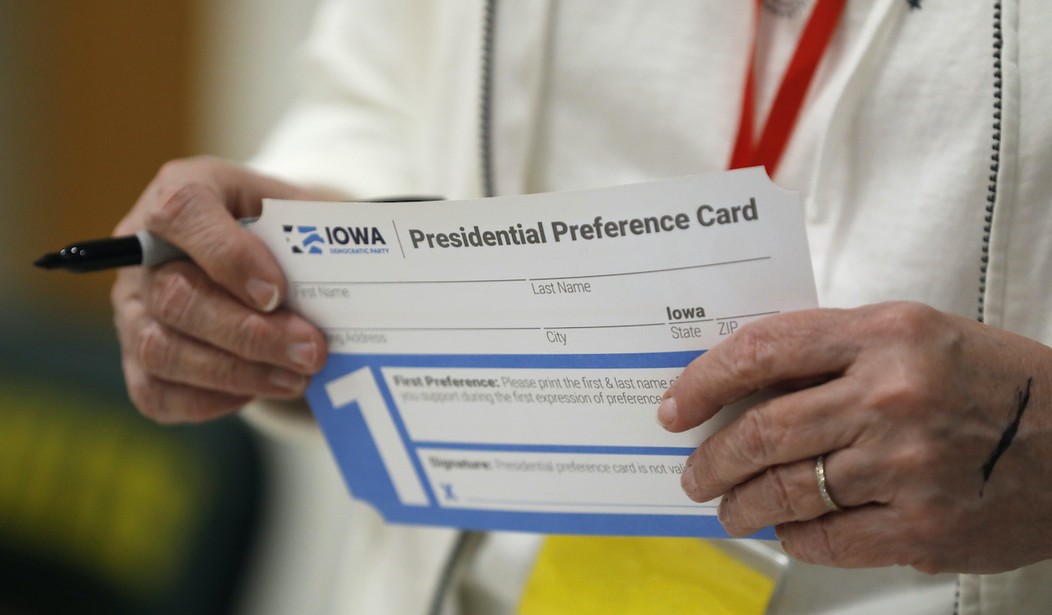Elections are the cornerstone of our republic. The accuracy of the tabulation of votes is critical to the maintenance of a government, “by the people and for the people.”
Two recent events – the Iowa Caucus and the accidental exposure Israel's entire voter registry, including personal details such as addresses, ID numbers another other information that could be used for identity theft, spying and even voter intimidation – have forced a rethinking of the pace at which technology is implemented into one of the most basic societal institutions.
A big story in the early portion of the Democratic Presidential Primary were the issues surrounding the Iowa Caucus, and whether the technical issues that arose in the “first in the nation” contest between potential Presidential candidates might foreshadow further problems for a party that has expended considerable time and energy blaming a variety of incidents for their loss in 2016 Presidential Election.
After controversy, delays, and a seemingly never-ending string of conspiracy theories, the final results of this months Iowa Caucus were finally revealed well after their expected delivery. At the heart of the confusion was the execution of the collection and reporting of final vote tally.
The results were marred by a new app used to collect and tally the results. The app was created specifically for first time use during the Iowa Caucus. The app in question – IowaReporterApp – was developed by Shadow Inc. It infamously malfunctioned during the caucus and caused major issues that delayed the beginning of the reporting of results of the caucus until late in the following evening after polls had closed.
Recommended
According to a report from the New York Times, “The app that the Iowa Democratic Party commissioned to tabulate and report results from the caucuses on Monday was not properly tested at a statewide scale,” and it had been “quickly put together in just the past two months,” according to anonymous sources.
The CEO of Shadow Inc. CEO Gerard Niemira, attempted to defend the app in an interview with Bloomberg in the aftermath of the Iowa disaster by saying, “All the data that was produced by calculations performed by the app was correct. It did the job it was supposed to do, which is help precinct chairs in the field do the math correctly. The problem was caused by a bug in the code that transmits results data into the state party’s data warehouse.”
The Department of Homeland Security offered to analyze the security of the app but, according to DHS, the Iowa Democratic Party curiously declined the offer.
Election security has remained a hot button issue in the years following the 2016 election, as investigations into Russian election meddling, and reports of the hacking of the DNC’s computers has remained a constant excuse for a party that has seemed to have issues connecting with working class Americans.
Some of the DNC’s issues were self-inflicted, as it was reported that John Podesta fell victim to a common online scheme used to obtain email credentials known as Phishing. Atlanta-based cybersecurity firm Dell SecureWorks reported that Podesta opened an email on March 19, 2016, that was created to look like a Google security alert. The link took Podesta to a phony log-in site where he entered his email credentials.
Adding to the self-inflicted embarrassment for the DNC, is the fact that the email was initially reported to the DNC’s IT department, as Podesta suspected the possibility that it may have been a fake alert, but was described as "legitimate" by an IT technician in a reply email, who later said he meant to write "illegitimate.”
Earlier this month in Israel, the political party known as Likud accidentally uploaded Israel's entire voter registry to a voting management app known to have security issues, effectively leaving millions of voter records accessible to anyone with an internet connection for days. This has potentially endangered voters in a country currently struggling with a deep political divide and a seemingly never-ending series of impromptu elections.
In the aftermath, Likud attempted to blame the developer of the app known as “Elector,” which is easily downloadable from the Apple Store, for the security breach. Israel’s Privacy Protection Authority said it was looking into the Elector incident, while Former Mossad head Tamir Pardo likened the app to a sort of "security coronavirus."
The integrity of major elections in both Israel and the United States hinge on the ability to secure voting systems and minimize foreign influence. Although issues with security can provide the losing party with a built-in excuse for underperforming, the ultimate goal of all participants should be to strive for the most accurate vote tallies possible.
Julio Rivera is a business and political strategist, the Editorial Director for Reactionary Times, and a political commentator and columnist. His writing, which is focused on cybersecurity and politics, has been published by websites including The Hill, Real Clear Politics, Townhall and American Thinker.

























Join the conversation as a VIP Member